Human Rights Watch (HRW) has called on the UN Independent Fact-Finding Mission investigating rights violations in Iran to probe the use of excessive force by security forces on protesters, particularly in areas with large ethnic and religious minorities such as the southeastern province of Sistan and Baluchistan.
“Security forces fired “birdshot” shotgun pellets, rubber bullets, and tear gas and beat and otherwise assaulted protesters on September 29, 2023, and again on October 20” in Zahedan, the capital of Sistan and Baluchistan, the New York-based human rights watchdog said in a statement on November 22.
The protests commemorated the deadly repression on September 30, 2022, in Zahedan, the capital of Sistan and Baluchistan, which is home to Iran's Sunni Baluch minority of up to 2 million people.
On this day, known as Zahedan’s Bloody Friday, security forces employed unlawful lethal force, resulting in the deaths of nearly 100 people, the largest number of casualties on any day during the anti-establishment protests that rocked Iran last year.
“Iranian authorities are as committed as ever to brutally crushing protests of their own people who demand fundamental change,” said Tara Sepehri Far, senior Iran researcher at HRW. “Security forces also appear to deploy excessive and lethal force even more quickly in cities like Zahedan that have large ethnic and religious minority groups.”
HRW said it had interviewed four witnesses to this year’s September 29 and October 20 protests and verified 14 videos posted to Telegram between September 29 and October 5.
“These show that on September 29, security forces were armed with shotguns and machine guns and deployed tear gas against protesters, beating them with batons” outside Zahedan’s Makki Mosque, HRW said.
The group quoted witnesses as saying that “security forces shot at protesters with birdshot and paintball pellets to their upper bodies, beat them with batons, and arrested large numbers of protesters, including children.”
Photos shared by activists show tear gas and shotgun cartridges marked as originating from Maham Manufacturing, HRW said, adding that munitions from this company were “commonly used during the crackdown” on last year’s widespread protests.
Witnesses said that in the days leading up to the anniversary of Bloody Friday, security forces in Zahedan positioned themselves on streets and intersections and arbitrarily stopped people heading toward Makki Mosque for Friday prayers, checking their identification papers and inspecting their mobile phones to find any videos or photos related to the previous protests.
According to the human rights group Haalvsh, which reports on violations in Sistan and Baluchistan, security forces arrested at least 216 people, including dozens of children, in the cities of Zahedan, Khaash, Mirjaveh, and Chabahar in Sistan and Baluchistan between September 29 and October 1. Security forces beat many of those arrested, Haalvsh found.
After authorities violently cracked down on protests between September 29 and October 1, Haalvsh said that military and security forces blocked off all streets and alleys surrounding the Makki Mosque on October 20.
The group reported that security forces beat protesters with batons, reportedly arrested hundreds of people, including many older people and children, and took them to detention centers.
On October 24, Amnesty International reported that on October 20, hundreds of people, among them dozens of children as young as 10, were forcefully apprehended, and that a significant number remained unaccounted for.
The London-based group said that detainees, both children and adults, have experienced torture and other abuse, including severe beatings and injuries from close-range paintball shots.
Data by the Internet Outage Detection and Analysis (IODA) project shows that as the anniversary of Bloody Friday approached, Sistan and Baluchistan experienced a recurrence of near-total internet shutdowns.
Meanwhile, the authorities have pressured the families of the victims of Bloody Friday to stay silent in exchange for financial compensation, which most families rejected, instead demanding accountability for those responsible for their relatives’ deaths.
“Over the course of the last year, the people of Sistan and Baluchistan have been regularly demonstrating against an autocratic government,” Sepehri Far said. “Rather than addressing their demands, Iranian authorities have resorted to harsh repression and the arbitrary detention of both adults and children. The United Nations Fact-Finding Mission should thoroughly investigate these violations and provide recommendations for achieving accountability.”
visit the accountability section
In this section of Iran Wire, you can contact the officials and launch your campaign for various problems







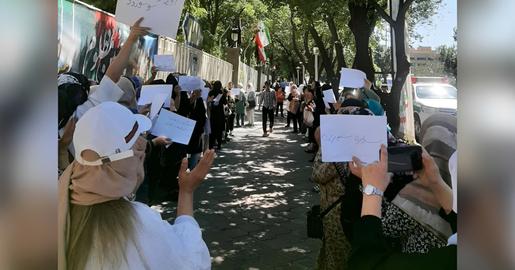



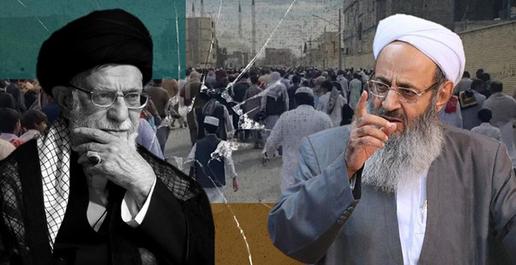
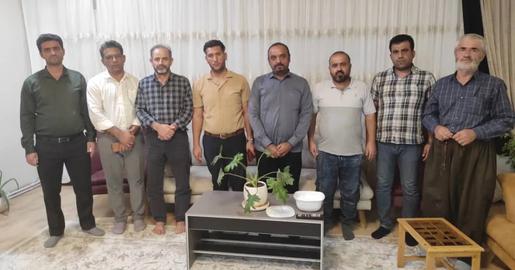
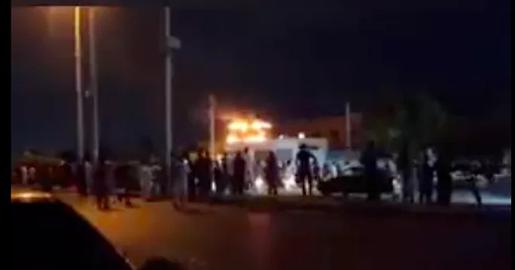
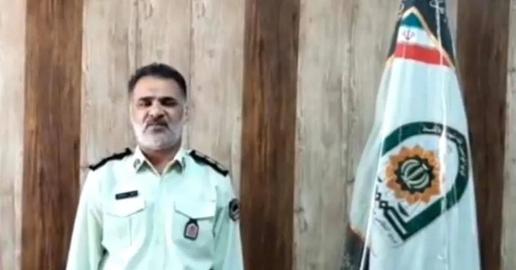





comments